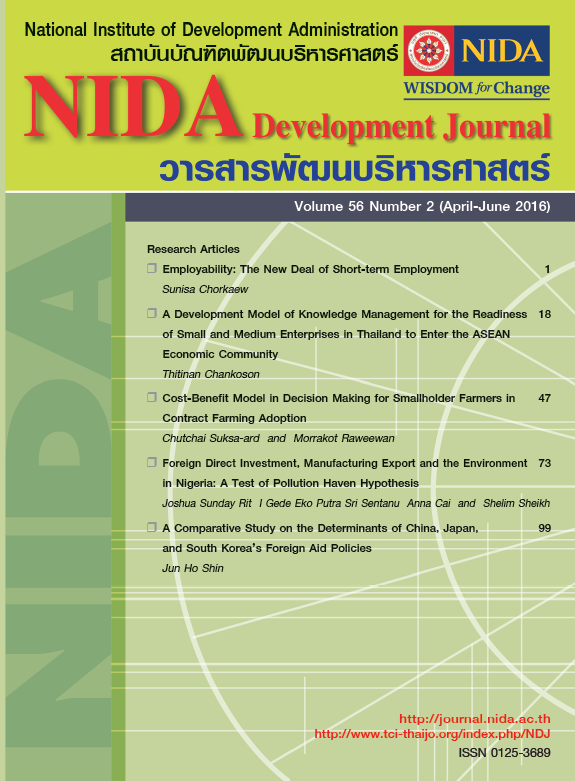A Comparative Study on the Determinants of China, Japan, and South Korea’s Foreign Aid Policies
Keywords:
Foreign Aid, Determinant, China, Japan, South KoreaAbstract
Despite the importance of international development, some people have been suspicious about the real intentions and positive impacts of current foreign aid practices. In the case of East Asian donors–China, Japan, and South Korea-an interesting and realistic picture of both donors and recipients can be drawn. This study investigates the determinants of foreign aid policies, exploring the adaptability of the public finance theories of the push and pull factors, such as economic-demographic theory, compensation theory, and incrementalism, in relation to the three donor countries. To test this, the relationships between the socio-economic factors and the volume of aid given to their partner countries by China, Japan, and South Korea were examined. Panel data analysis for the pull factors of the recipient countries and correlation analysis for the push factors of the donor countries were adopted. For the pull factors, despite some conflicting signs between China, Japan, and South Korea, the economic-demographic theory factors and the compensation theory factors were strongly observed in the presented study. Regarding the push factors, economic-demographic theory, compensation theory, and incrementalism were observed in this study.





